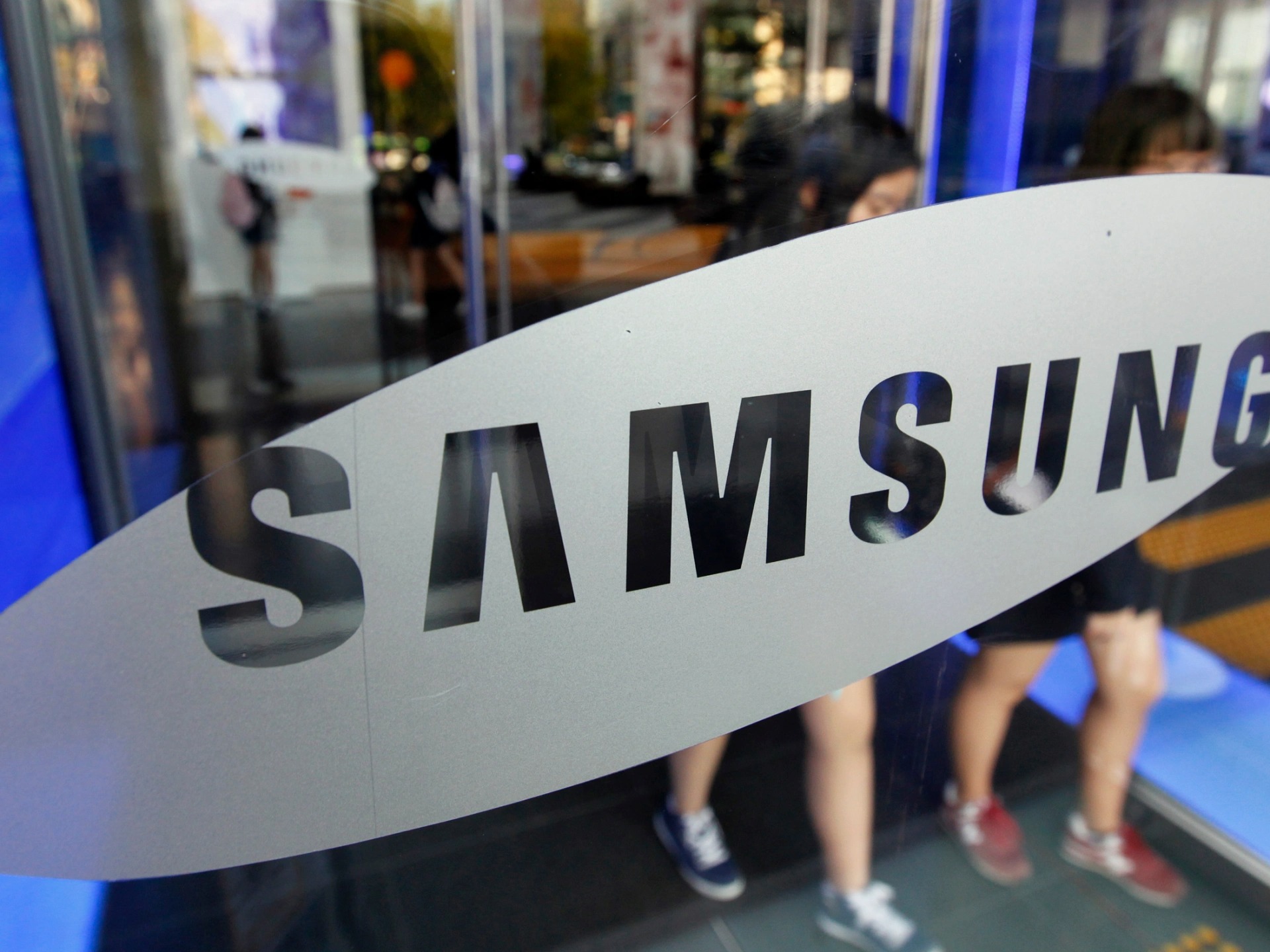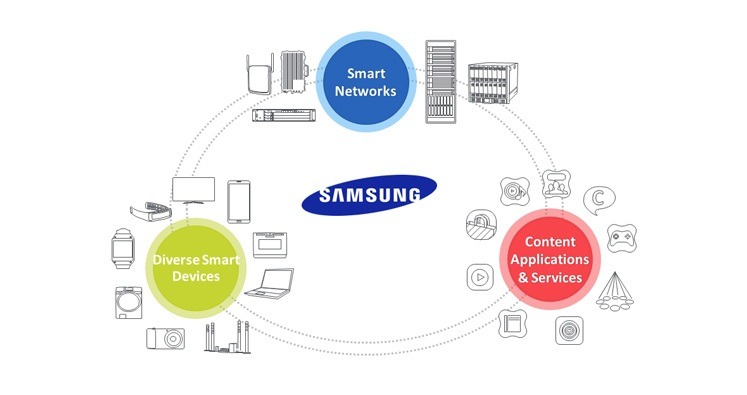Samsung is a South Korean multinational company that produces a wide range of electronic devices, including smartphones, tablets, televisions, home appliances, and more. The impact of Samsung’s products can be seen in various ways, including:
- Economic Impact: Samsung is one of the world’s largest technology companies, and its products generate significant revenue for the company and create jobs in the manufacturing, design, and marketing of its products. The company’s success has also helped to boost the South Korean economy and create economic opportunities for many people around the world.
- Technological Innovation: Samsung has been a pioneer in the development of new technologies, such as flexible screens, 5G connectivity, and foldable smartphones. These advancements have influenced the entire tech industry and inspired other companies to innovate and improve their products.
- Environmental Impact: Samsung has made efforts to reduce its environmental impact through initiatives such as eco-design, sustainable sourcing, and recycling programs. The company has also committed to using renewable energy sources for its operations and reducing greenhouse gas emissions.
- Social Impact: Samsung’s products have had a significant impact on people’s lives, providing them with access to information, communication, and entertainment. Samsung’s smartphones, for example, have revolutionized the way people communicate and interact with each other, connecting individuals and communities across the globe.
In summary, Samsung’s products have had a significant impact on various aspects of society, including the economy, technology, the environment, and people’s lives.
Samsung’s Role in the Global Economy:
Samsung is one of the world’s largest technology companies, and its impact on the global economy is significant. Here are some key ways that Samsung contributes to the global economy:
- Revenue Generation: Samsung’s products generate significant revenue for the company, with its total revenue exceeding $200 billion in 2021. The company’s success has also helped to boost the South Korean economy, as Samsung is one of the country’s largest employers.
- Job Creation: Samsung’s success has created jobs in various fields, including manufacturing, design, engineering, and marketing. The company employs over 300,000 people globally, and many more jobs are created in the supply chain and related industries.
- Trade and Export: Samsung’s products are exported to countries all over the world, contributing to global trade and commerce. The company is also involved in the production of components and materials for other technology companies, further expanding its impact on the global economy.
- Innovation and Research: Samsung’s investment in research and development has led to the development of new technologies and products, which in turn stimulate economic growth and create new opportunities for innovation and entrepreneurship.
- Economic Influence: Samsung’s success has also led to the growth of related industries, such as software development, app development, and digital content creation. The company’s dominance in the technology market has also influenced other industries, such as telecommunications and consumer electronics.
Overall, Samsung’s role in the global economy is significant, with the company contributing to economic growth, job creation, and innovation in various fields.
Technological Innovations by Samsung and their Impact:
Samsung has been a pioneer in the development of new technologies and products, and its impact on the tech industry is significant. Here are some key technological innovations by Samsung and their impact:
- Flexible Screens: Samsung was the first company to develop flexible OLED screens, which have revolutionized the design of smartphones, tablets, and other devices. These screens are thinner, lighter, and more durable than traditional screens, allowing for new form factors and designs.
- 5G Connectivity: Samsung has been at the forefront of 5G technology, developing devices and infrastructure for this new standard of mobile connectivity. 5G offers faster speeds, lower latency, and greater capacity than previous generations of mobile networks, which will enable new applications and services in areas such as autonomous vehicles and remote surgery.
- Foldable Smartphones: Samsung’s foldable smartphones, such as the Galaxy Fold and the Z Fold, represent a new form factor for mobile devices. These devices offer larger screens and more versatile usage modes, which could lead to new use cases for smartphones in areas such as productivity and entertainment.
- Artificial Intelligence: Samsung has invested heavily in artificial intelligence (AI), developing technologies such as Bixby, its virtual assistant. AI is expected to have a major impact on many industries, including healthcare, finance, and transportation, and Samsung’s investments in this area position it as a major player in the AI space.
- Quantum Dot Technology: Samsung’s quantum dot technology is used in its high-end televisions, providing improved color accuracy, brightness, and contrast. This technology has improved the viewing experience for consumers and has influenced the entire television industry.
Overall, Samsung’s technological innovations have had a significant impact on the tech industry and society as a whole, influencing the design of devices, the capabilities of networks, and the applications of AI.
Environmental Sustainability Efforts by Samsung:
Samsung has made efforts to reduce its environmental impact through various initiatives and programs. Here are some key environmental sustainability efforts by Samsung:
- Samsung is a South Korean multinational company that produces a wide range of electronic devices, including smartphones, tablets, televisions, home appliances, and more. The impact of Samsung’s products can be seen in various ways, including:
- Economic Impact: Samsung is one of the world’s largest technology companies, and its products generate significant revenue for the company and create jobs in the manufacturing, design, and marketing of its products. The company’s success has also helped to boost the South Korean economy and create economic opportunities for many people around the world.
- Technological Innovation: Samsung has been a pioneer in the development of new technologies, such as flexible screens, 5G connectivity, and foldable smartphones. These advancements have influenced the entire tech industry and inspired other companies to innovate and improve their products.
- Environmental Impact: Samsung has made efforts to reduce its environmental impact through initiatives such as eco-design, sustainable sourcing, and recycling programs. The company has also committed to using renewable energy sources for its operations and reducing greenhouse gas emissions.
- Social Impact: Samsung’s products have had a significant impact on people’s lives, providing them with access to information, communication, and entertainment. Samsung’s smartphones, for example, have revolutionized the way people communicate and interact with each other, connecting individuals and communities across the globe.
In summary, Samsung’s products have had a significant impact on various aspects of society, including the economy, technology, the environment, and people’s lives.
Samsung’s Contribution to Social and Cultural Change:
Samsung has made contributions to social and cultural change through various initiatives and programs. Here are some key ways that Samsung has contributed to social and cultural change:
- Corporate Social Responsibility: Samsung has a strong commitment to corporate social responsibility and has established various programs and initiatives to support social causes, including education, healthcare, and disaster relief. The company has donated millions of dollars to various charities and organizations around the world.
- Diversity and Inclusion: Samsung has made efforts to promote diversity and inclusion within its organization and in the wider community. The company has implemented programs to support women and minorities in the tech industry, and has established partnerships with organizations that promote diversity and inclusion.
- Education: Samsung has made significant contributions to education, particularly in the areas of STEM (science, technology, engineering, and math) education. The company has established various education programs and initiatives, including the Samsung Solve for Tomorrow competition, which encourages students to use STEM skills to solve real-world problems.
- Art and Culture: Samsung has also made contributions to the arts and culture, including sponsoring cultural events and supporting emerging artists. The company has also developed various digital platforms and applications that promote art and culture, such as the Samsung Art Store and the Samsung Global Goals app.
- Social Media: Samsung’s social media campaigns have also contributed to social and cultural change. For example, the company’s #DoWhatYouCant campaign encouraged people to overcome their limitations and pursue their dreams, inspiring many people around the world.
Overall, Samsung’s contributions to social and cultural change demonstrate its commitment to making a positive impact on society beyond its products and services. By supporting education, diversity and inclusion, and social causes, as well as promoting art and culture, Samsung is working towards a more inclusive and equitable future for all.
Conclusion:
Samsung has had a significant impact on various aspects of society, from the economy to the environment to social and cultural change. The company’s technological innovations have revolutionized the tech industry, from flexible screens to 5G connectivity to AI, and have had far-reaching implications for many industries and applications. Samsung’s environmental sustainability efforts demonstrate its commitment to reducing its environmental impact and promoting sustainable practices in the tech industry, while its contributions to social and cultural change demonstrate its commitment to making a positive impact on society beyond its products and services. Overall, Samsung’s impact on society has been significant, and the company’s continued efforts towards innovation, sustainability, and social responsibility position it as a key player in the tech industry and beyond.

















